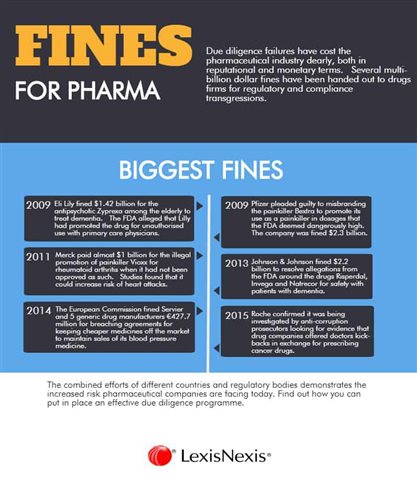A Confidential Information Memorandum (CIM) plays a pivotal role in any M&A transaction . It’s the cornerstone document that introduces the company, sets the tone for buyer discussions, and frames the...
Identifying politically exposed persons (PEPs) is a cornerstone of modern compliance, forming a key component of anti-money laundering (AML) frameworks and responsible corporate governance. PEP checks...
Regulatory risk management refers to the structured discipline of identifying, assessing, and mitigating risks linked to evolving laws, rules, and supervisory expectations. For organisations operating...
A transaction can unravel in seconds due to missed red flags, incomplete diligence, unreliable sources and more. In investment banking, the cost of blind spots is often reputational fallout, failed deals...
For investment banking analysts, due diligence often means long nights, endless tabs, and high stakes. The information must be right, and the timing must be perfect, which simply isn’t sustainable or attainable...
Since the mid-1990s, regulatory expectations on the due diligence carried out in the pharmaceutical sector have become much more complicated. Drugs firms are subject to regulations laid out in the US Foreign Corrupt Practices Act and by the US Food and Drug Administration (FDA); in the UK under the Bribery Act and by the Medicines and Healthcare Products Regulatory Agency; and across Europe by the European Medicines Agency (EMA).

Transparency through international cooperation
International cooperation between agencies is also adding further compliance and due diligence pressures: last year, the FDA and EMA announced that they were strengthening collaboration in pharmacovigilance. The two agencies now meet on a monthly basis to discuss shared pharmacovigilance issues and to ensure that regulatory steps taken in one jurisdiction are duplicated in the other. Canadian and Japanese regulatory authorities also attend the meetings as observers.
Anti-bribery and anti-corruption enforcement is gathering pace, as the number of initiatives by both individual countries, and by joint cooperation, increases. China, Japan, Brazil and the UK have all passed strict anti-corruption laws to combat bribery. Whilst retaining national sovereignty, countries are realising that a global problem requires a global solution and are sharing each other's findings and regulatory frameworks in support of greater transparency.
The biggest fines
Due diligence failures have cost the pharmaceutical industry dearly, both in reputational and monetary terms. Several multi-billion dollar fines have been handed out to drugs firms for regulatory and compliance transgressions:
In January 2009, Eli Lily was fined $1.42 billion over the promotion of the antipsychotic drug Zyprexa among elderly populations to treat dementia. The FDA alleged that Lilly had promoted the drug for unauthorised use with primary care physicians.
In September 2009, Pfizer settled, what was then, the largest-ever health care fraud case in the US. The company pleaded guilty to misbranding the painkiller Bextra to promote its use as a painkiller in dosages that the FDA deemed dangerously high. The company was fined $2.3 billion.
In November 2011, Merck agreed to pay almost $1 billion for the illegal promotion of the painkiller Vioxx for the treatment of rheumatoid arthritis when it had not been approved as such. The drug had been withdrawn in 2004 after studies found that it could increase the risk of heart attacks.
In November 2013, Johnson & Johnson was fined $2.2 billion to resolve allegations around the drugs Risperdal, Invega and Natrecor. The FDA alleged that the company had promoted the drugs as safe and effective for dementia patients in elderly and nursing homes and had paid kickbacks to physicians.
In July 2014, The European Commission fined French company Servier and five generic drug manufacturers €427.7 million for breaches of rules on restrictive agreements aimed at keeping cheaper medicines off the market to maintain the sales of its blood pressure medicine.
As recently as last month, Swiss pharmaceutical company Roche confirmed it was being investigated by anti-corruption prosecutors looking for evidence that drug companies offered doctors kick-backs in exchange for prescribing cancer drugs.
The combined efforts of different countries and regulatory bodies, as well as the size of the fines and their gradual ramping up over time, clearly demonstrates the increased risk pharmaceutical companies are facing today. LexisNexis can help you to ensure that you have an effective and meaningful due diligence programme, even where the scientific and regulatory environments are highly complex.
ps 3 ways you can apply this information right now to…
- To protect your business and reputation you need to better understand your customers, employees and vendors. Lexis Diligence brings together all the intelligence you need in one place to conduct consistent due diligence and comply with anti-money laundering and anti-bribery regulatory requirements.
- Keep up to speed on developing news and expert opinion with our regular posts on Anti-Bribery & Corruption.
- Leave a comment below. Let's start a conversation!